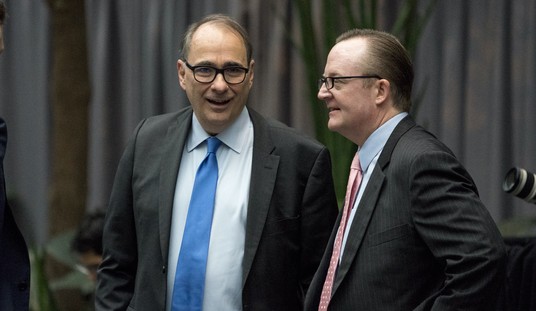Once known as the "Sheriff of Wall Street," New York Governor Eliot Spitzer has resigned because of his involvement in a prostitution ring and is now a target of a federal probe.
During his reign as New York Attorney General, Spitzer ruined the reputations and careers of Wall Street executives to bolster his political ambitions.
For those interested in learning the true story behind one of Spitzer’s high profile cases, I highly recommend the book "King of the Club", written by veteran Wall Street reporter Charles Gasparino.
“King of the Club” is the story of the rise and fall of Dick Grasso: from his humble upbringing to the height of Wall Street as the CEO of the New York Stock Exchange (NYSE) and his abrupt departure following a scandal surrounding his $140 million pay package.
The importance of “King of the Club” goes beyond a story about Grasso, Wall Street and the NYSE. The book’s true significance is it provides a real life example of the way a government official like Spitzer can use the power of the state to loot a man of his property and reputation.
It’s a stark reminder of the message of Ayn Rand’s “Atlas Shrugged”: capitalists are vulnerable in a culture that does not appreciate business success. Grasso, like Rand’s character Hank Reardon, found himself in court defending his character and achievements.
In a country that loves an underdog and rags to riches stories, Dick Grasso should be a hero. Unfortunately, because business leaders are viewed with deep skepticism, they are defenseless from the assault of ambitious politicians and a hostile media. Through this lens, Grasso became the poster child for Wall Street greed.
Recommended
Grasso’s rise to the top post at the NYSE was an amazing feat. Starting at $81 per week at an entry-level position–without a college degree–he gradually worked his way through the ranks.
His path was not easy. Grasso quit on several occasions because he was not chosen for the top job but management always recruited him back; he was too valuable to lose.
As CEO of the NYSE, Grasso had an outstanding record of achievement. He significantly grew the listings of companies trading on the NYSE and aggressively defended the exchange from the NASDQ–a competing exchange. He built the NYSE brand by executing media savvy strategies such as allowing CNBC to broadcast from the exchange floor and created a daily media event surrounding the ringing of the opening bell.
Most importantly, Grasso was responsible for the first counter attack against terrorism: his deep understanding of the inner working of the NYSE and its players enabled the stock markets to open just days after the attack on September 11th.
All of his accomplishments were drowned out by the media circus surrounding his pay. For years, Grasso put the bulk of his salary in a deferred account that was specifically designed by the NYSE to retain its top executives. As part of a contract negotiation, the NYSE board allowed Grasso to cash in his retirement money so it would be under his control.
Enter Hank Paulson the current Secretary of Treasury and then CEO of Goldman Sachs.
Even though the board of the NYSE approved Grasso’s pay, the ensuing media frenzy gave Paulson the opportunity to lead the charge calling for Grasso’s ouster. Grasso’s defense of the specialist system for trading stocks was in the way of Goldman Sach’s investment in computer trading.
After losing his dream job, things only got worse for Grasso. Eliot Spitzer, smelling blood in the water, filed a lawsuit against Grasso and Ken Langone–a NYSE board member and head of its compensation committee. Spitzer wanted Grasso to return $100 million to the exchange. Langone was charged with “deception on an $18 million piece of Grasso’s pay.”
Spitzer’s suit used a New York State law that requires executive compensation for non-profit organizations to be “reasonable” and “commensurate with duties performed”–the NYSE was a non-profit organization prior to 2005.
Hoping for a quick settlement, Spitzer’s team geared up his public relations smear machine to try the case in the media, a strategy that served him well in the past.
Spitzer, however, misjudged the men he was trying to bully. Both Grasso and Langone were self-made men who cared about reputation and justice and refused to buckle under pressure.
Spitzer was forced to continue the investigation, which “included 1,454 hours of depositions.” No tactic was too low for Spitzer: he attacked Grasso’s personal life, which had nothing to do with his pay. He deposed Grasso’s secretary and inquired about an affair, and, during his nine-day deposition, Grasso was asked if he had a love child.
In October 2006, New York Supreme Court Justice Charles Ramos ruled from the bench, in a summary judgment, against Grasso for him to return $100 million to the stock exchange. Grasso has good grounds for appeal: “Ramos had given Grasso all the legal rights of a detainee at Guantanamo Bay.”
It’s ironic that during his now infamous trip to Washington, D.C. to testify in Congress, Spitzer was on TV blaming the bond insurance crisis on regulators that were “bowing down to the ideology of Ayn Rand." Now it turns out that Spitzer, the crusader against capitalism could not regulate his own behavior.

























Join the conversation as a VIP Member